Moneyball for Indie Filmmakers: How to Compete When the Game Is Rigged
Breaking Through from 50 Feet Below the Crap
Want to know what it’s like to make an indie film? Watch Moneyball.
I rewatched Moneyball recently, the 2011 Brad Pitt film based on Michael Lewis’s book. I’ve seen it a bunch of times (and love it), but, as often happens with movies, it can hit a little differently based on what you’re going through and where you are in life at the time.
Moneyball tells the true story of how Oakland A's general manager Billy Beane, facing one of the lowest payrolls in Major League Baseball, used data-driven analysis and unconventional thinking to build a competitive team. I know a movie about data analysis might sound boring, but it’s a really compelling and emotional film and I highly recommend it if you haven’t seen it. Plus, get you to see Brad Pitt eat a lot.
I’m not a sports guy at all, but sports naturally make for amazing movies. You’ve got a clear good guy, a clear bad guy, a clear goal, clear stakes, and it doesn’t matter if it’s baseball, basketball, karate, Nascar, or a Hunger Game… who can resist pulling for a good underdog?
But what makes Moneyball special isn’t just the sports aspect, it’s because it’s about trying to compete in a world when the game is rigged.
And that feels an awful lot like indie film.
What People Get Wrong About Indie Film
There are two common ways people view indie filmmakers:
The “starving artist” doing their cute little projects over in the corner! (I can’t tell you the number of times I’ve heard someone say “Oh, wait, this is like a real movie!”).
The “mini-Hollywoods” whose movie is in theaters and on Apple right next to Marvel movies! (I can’t tell you the number of times I’ve heard someone say “Invite me to the Oscars!”)
Both of these perspectives fall short of and do a disservice to what indie filmmakers actually do.
What Indie Filmmaking Really Is
We are artists. We create worlds from scratch and we tell stories that hopefully reach into your soul in the way only art can.
We are mini-Hollywoods in that we are competing with major studios for your valuable attention but we are doing it with a fraction of the resources.
We are entrepreneurs running small businesses. We are trying to figure out how to turn a profit so that we can keep making movies. We hire people, we run payroll, we bring on contractors to help us make and release these films. We have to deal with accountants and attorneys and insurance.
We are marketers. We have to be the face of a brand. We have to be content creators and influencers. We have to figure out how to build a following with very little money.
We are like touring bands, taking our movie from festival to festival, city to city, theater to theater, building relationships along the way.
This is a full-time job on its own, but most of us have to be all those things AND still balance day jobs and families. (So, if you see an indie filmmaker, give them a hug and buy them a drink!)
Enter: Moneyball
There’s a line in Moneyball where Billy says:
“There are rich teams and there are poor teams. Then there's fifty feet of crap, and then there's us.”
THIS is indie film. There are rich teams (Netflix, Disney), and there are poor teams (A24, Neon). Then there’s fifty feet of crap, and then there’s us.
We are competing for eyeballs with movie studios that are able to spend hundreds of millions of dollars on the production and marketing of their films. Even so-called “tiny” indie films are spending millions. While we (and most indie filmmakers at our size) are spending less than it takes to put in a pool at your house.
We are the underdogs. Even the "indie" darlings of Hollywood—A24, Neon—are playing a completely different game. We’re not the farm team. We’re like Kevin Costner building a field in our backyard, hoping, praying that “if we build it, they will come.”
There is no world in which we find success competing on their terms.
“If we try to play like the Yankees in here, we will lose to the Yankees out there.”
In Moneyball, Billy figured out if they played the same game as the “rich teams” they’d lose every time. So they learned to play the game differently, bringing on players that were more affordable (too old, too unpredictable, too funny looking), but who knew how to get on base and get runs.
“Of the twenty thousand knowable players for us to consider, I believe that there is a championship team of twenty-five people that we can afford. Because everyone else in baseball undervalues them. Like an island of misfit toys.”
Hollywood will always have more money, more connections, more influence, more power, more talent… so how do we compete?
What can indies offer that studios can’t?
What can indie film do differently to compete? What does Hollywood undervalue that we can embrace? What are our “island of misfit toys?”
Quality filmmaking. The fact that we don’t have to answer to shareholders and executives means we can make the movies we want to make. We don’t have to make a movie based on a board game. We can tell small but compelling and character-driven stories that reflect real emotion on screen.
Personal connection. This probably goes without saying, but we are not famous. We don’t have to hide behind assistants and PR companies. We get to connect directly with audiences and get to know them personally. Hollywood is fighting for an opening weekend. Indie filmmakers are fighting for lifelong relationships.
“Indie-cred.” - Some bigger-budget production companies are able to thrive without selling out (there is no brand cooler than A24), but this is an area where we can compete. Act like a band on tour. Put effort into your brand. Sell merch. We’re working on vinyl records, custom Blu-rays, enamel pins, shirts, and books. Not only do all of these things help establish our brand as filmmakers, but (bonus) they’re also additional revenue.
A platform for up-and-coming talent. My absolute favorite part of the filmmaking process is finding and platforming new talent. Because we can’t afford big-name actors or established crew, we have to get scrappy. Recent college grads, theater actors, short filmmakers, we have gotten really lucky with the “misfit toys” we’ve been able to surround ourselves with, and I can’t wait to see them continue to go on to bigger things.
A community of support - What’s that saying about “A rising tide lifts all boats?” As opposed to Hollywood, where they are competing for Box Office every weekend, indie film is a community where we can combine our forces against the Goliath of Hollywood. I’ve been amazed at how filmmakers are willing to share their successes and losses and data so that we can all learn from it. When you buy a ticket to a Guacamole Yesterdays screening, you aren't just supporting us, you're showing other indie filmmakers that it is possible.
The benefit of time. We might not have money or connections, but we do have time. Persistence is the only way to get traction. I'm gonna mix my movie metaphors here, but as Rocky says, “It's not how hard you can hit, it's how hard you can get hit and keep going.”
Case Study: Hundreds of Beavers
A recent indie film success story is Hundreds of Beavers. The film has cleared over a million dollars from a combination of unique in-person screenings (complete with people dressed up as Beavers), streaming deals, and self-released Blu-ray sales. But, they created a unique film (mostly silent, black & white, slapstick) that encouraged a rabid fanbase and audience participation.
Guacamole Yesterdays is NOT Hundreds of Beavers. Most films aren’t Hundreds of Beavers. Part of what makes Hundreds of Beavers unique is that it is a unique theatrical experience meant to be experienced with a crowd.
But, like the Oakland A’s and Hundreds of Beavers, you can lean into what makes you unique.
My day job is in design, branding, and marketing. And when I work with a client to develop their branding, my job is to figure out who they are and put a megaphone on it. If you try to sell yourself as something you’re not, people see through it. So, embrace who you are.
How can you not be romantic about movies?
Indie film is a tough gig. 80% of first-time filmmakers never make a second film. And after you make your first movie, you understand why. It consumes your life (and bank account) for 4-6 years with very little return. The Cinderella stories you read about of filmmakers getting into Sundance, getting picked up for a million dollars, and offered the next Marvel movie? You’re only reading about those stories because they are SO RARE.
But… movies are magic. And every day that I get to be in even the vicinity of the magical and creative act of filmmaking, I am so incredibly grateful. To build something out of nothing and get to have a shared emotional experience with people around the world… there’s nothing like it.
Not even baseball.
“Any other team wins the World Series, good for them. They're drinking champagne, they get a ring. But if we win, on our budget, with this team... we'll have changed the game. And that's what I want. I want it to mean something.”
—Hudson
🥑 Guacamole Yesterdays is a sci-fi romance that follows a heartbroken woman who, after a painful separation, turns to cutting-edge technology that lets her relive and reshape her memories in a quest for healing.
🍿 In theaters beginning May 1.
📺 On-demand on major streaming platforms starting June 24.
Get tickets and find out more at GuacamoleYesterdays.com


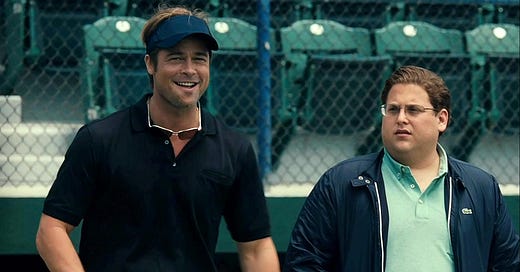



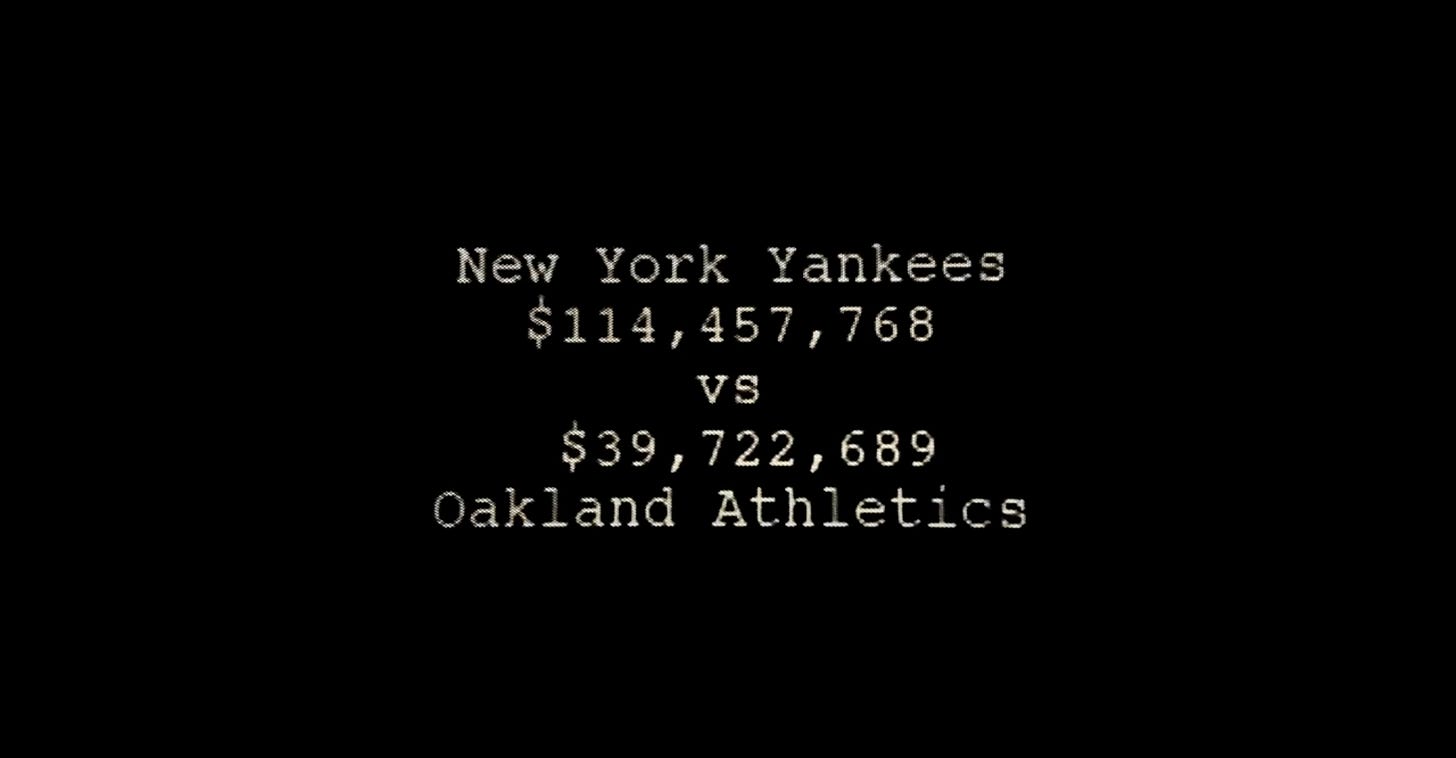
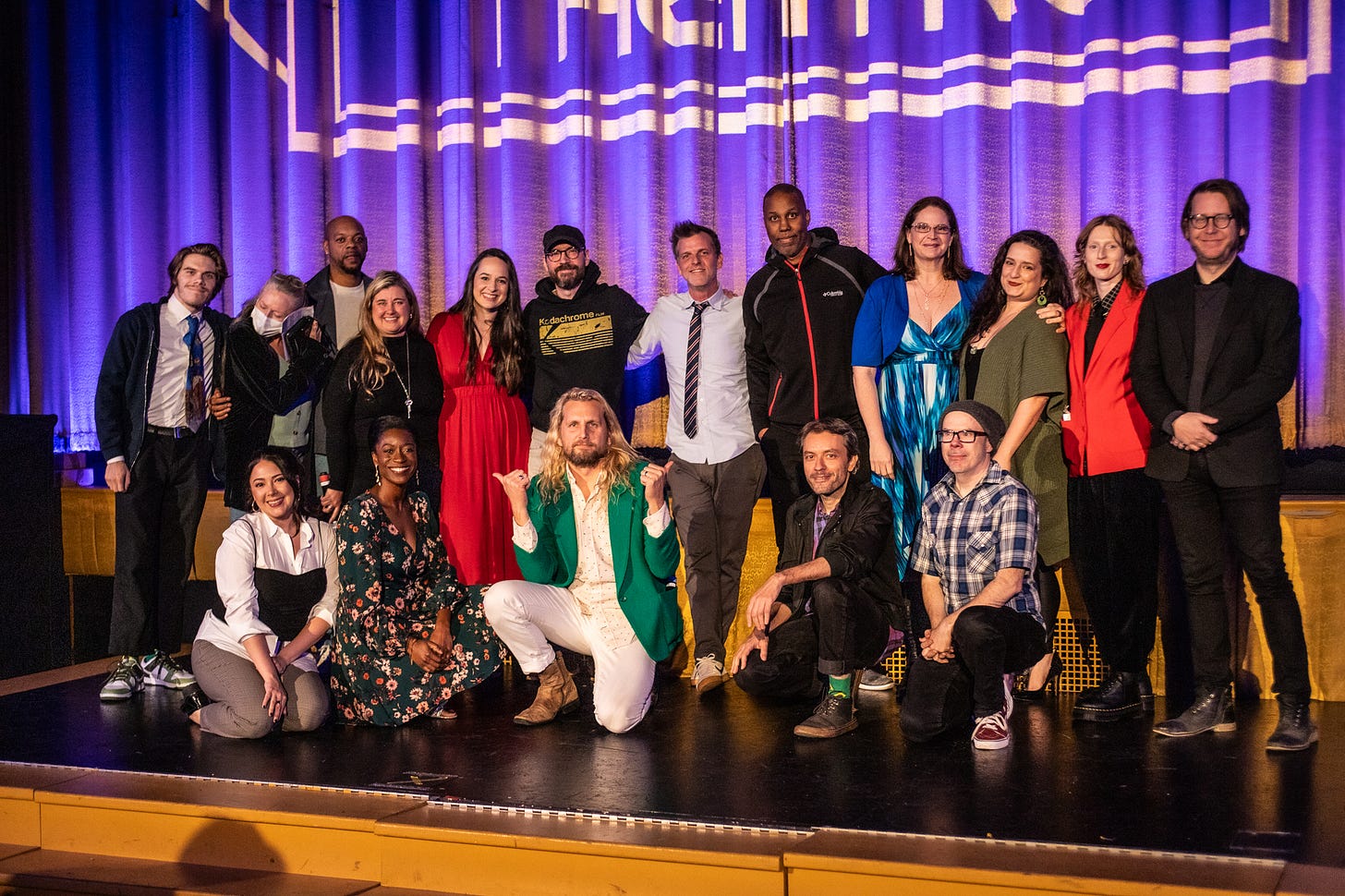
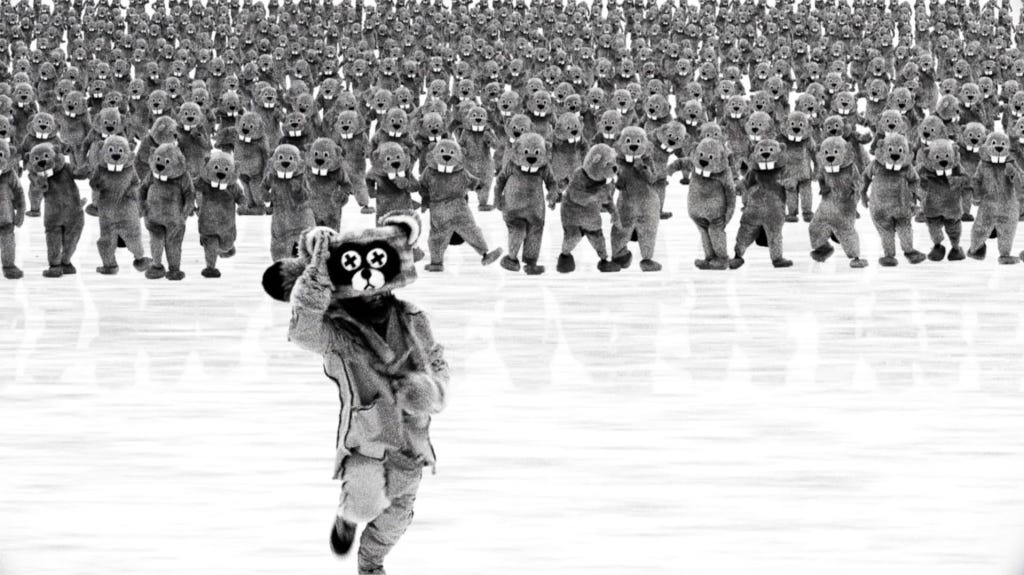
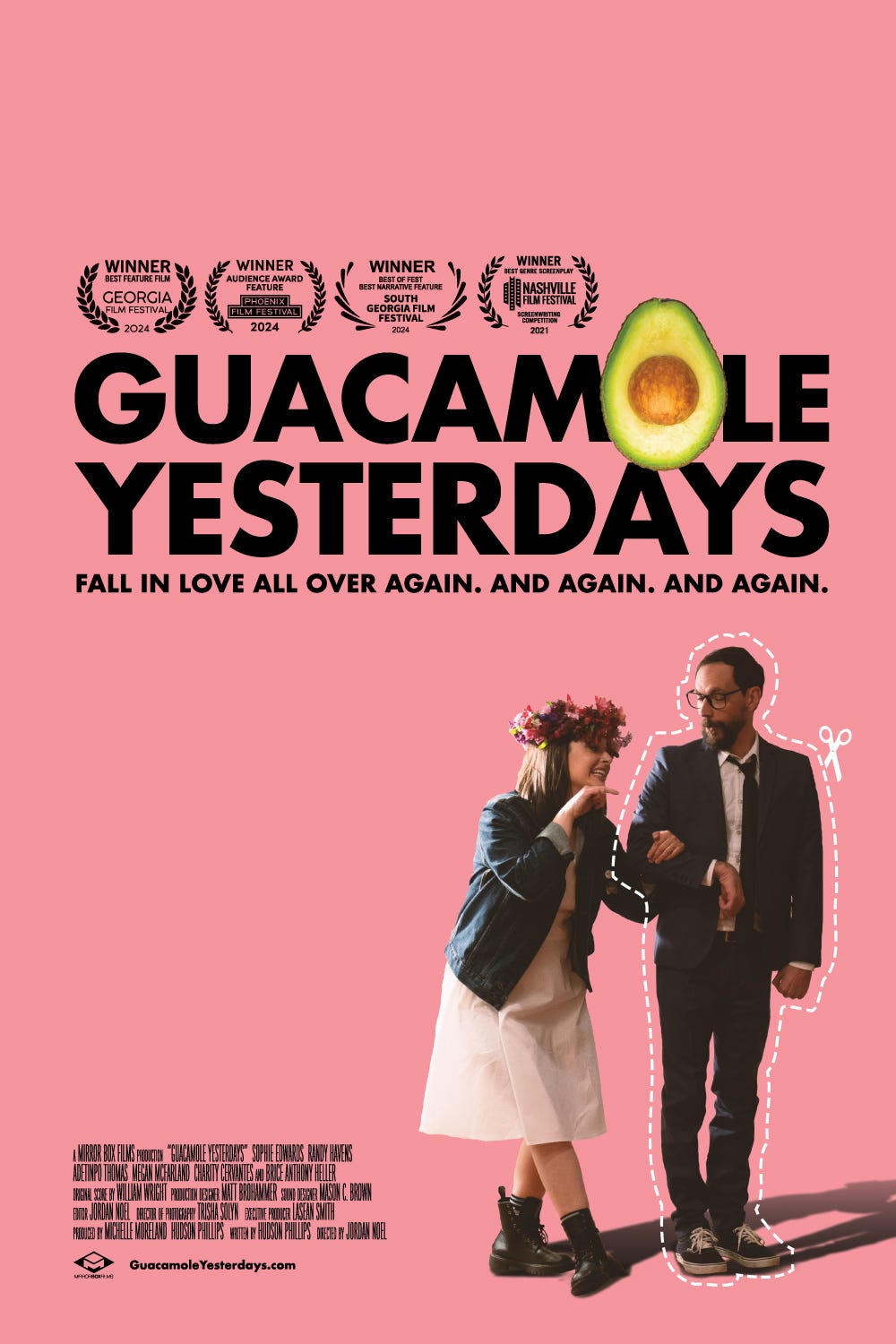
So well put! Thank you!!
Well written, Hudson. Congratulations on your new film, I’ll check them out. I’ve been a DP for many decades and direct my own films when I can. It’s about long term survival and finding unconventional ways to get creative work out in the world. I’ve been enjoying Substack as a great way to find more filmmakers and artists. Keep up the good work!